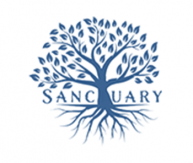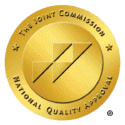Los Angeles Rehab Aftercare Plan
- Home
- Rehab Programs in Los Angeles, California
- Los Angeles Rehab Aftercare Plan
Addiction is a disease that is never “cured.” A person needs to maintain their recovery over time. Continuing treatment and aftercare are vital to recovery from addiction. At Sanctuary Treatment Center, we help our clients with an extensive rehab aftercare plan in Los Angeles, California. As a result, our clients have lower relapse rates than those who do not get aftercare treatment.

Why is a Rehab Aftercare Plan so Important?
Treatment planning is important to long-term recovery. At any stage of rehab, clients need to plan the next steps. For instance, during drug or alcohol detox, clients need to think about the next stage of treatment. This type of rehab aftercare plan must occur before leaving inpatient detox. This way, clients can move from one level of care to the next without a lapse in treatment.
Clients must remember that addiction is a chronic, relapsing mental disorder. Like any chronic disease, clients need to stay one step ahead of the disease. Our Los Angeles based treatment planning is designed to prevent a “flare-up” of symptoms. It also reduces the risk of relapse. However, rehab centers only have so many levels of care. So, what happens after clients complete all levels of treatment?
What is a Rehab Aftercare Program?
Clients will not be “cured” of their addiction following all stages of treatment. Rehab aftercare programs help clients maintain their recovery for the long term. In addition, clients must remember that recovery is not always a linear process. While relapse prevention is the goal of recovery, relapses can and do occur. Therefore, clients sometimes need to go back to a higher level of care.
Aftercare programs keep a person engaged in long-term recovery. Clients will continue to go through changes throughout their lives. Sometimes, relapse triggers are unknown to the client for years after sobriety. On the other hand, unexpected life events can cause a person to fall back on unhealthy behaviors. Thus, aftercare treatment planning in Los Angeles, California helps clients stay on top of long-term recovery goals.
What are the Benefits of a Rehab Aftercare Plan?
A rehab aftercare plan offers many benefits to those in recovery. For one thing, addiction impacts many areas of a person’s life. As a result, clients might not have stable housing, employment, or support. After leaving a treatment center, clients might be on their own and starting fresh. Clients need to have some type of program after intensive treatment for this reason.
Aftercare treatment planning in Los Angeles, CA offers the following benefits:
Relapse Prevention
Preventing relapse is the main goal of addiction treatment. Still, relapse is part of the process of recovery from any chronic disease. Clients want to stay on top of their recovery as much as they can, however. Thus, aftercare programs help clients continue their recovery with ongoing treatment.
As clients move forward in treatment, they gain more freedom from the restrictions of inpatient rehab. Yet, despite learning relapse prevention skills, they now need to use them in real life. Sometimes, these skills need to be refined or a person needs something different. Aftercare planning keeps a person connected to the guidance that they will need to work on these skills.
Peer Support
One of the most vital aspects of recovery is peer support. Aftercare programs often include some type of peer support. Some people stay connected as alumni of their treatment center. On the other hand, many people find support within their community.
Peer support keeps a person connected to the recovery community. Therefore, clients feel less alone in their struggles to maintain sobriety. While support from family and friends is also helpful, a client’s loved ones might not understand things the way peers do.
Maintain Sobriety and Recovery
The overall goal of aftercare treatment planning is to maintain long-term recovery. Overall, clients must remember that treatment for addiction never really ends. Throughout life, treatment may be more or less intensive at times. However, recovery always needs to be somewhere in the person’s life.

What Does Rehab Aftercare in Los Angeles, CA Look Like?
Aftercare treatment plans can look different for each person in recovery. However, these plans often involve similar elements. Clients learn and connect to several approaches to aftercare during treatment. Aftercare can also vary in levels of intensity depending on the clients’ needs.
Aftercare plans can include the following:
Outpatient therapy helps clients continue working on coping skills as well as treating co-occurring mental health disorders.
Sober living homes are great for those without stable and safe places to live after residential treatment.
Peer support groups include AA, NA, and alternatives, like SMART Recovery. These groups are free of charge and are proven helpful to sustain long-term recovery.
TMS treatment can help a person with treatment-resistant mental health disorders as well as reduce cravings for drugs and alcohol.
Holistic rehab can offer a person new outlets for socializing and dealing with stress. In addition, holistic rehab can help clients find new passions and meaning in life.
Biofeedback helps clients learn more about how their brain works. As a result, therapists can target treatment to achieve optimal cognitive functioning.
Career and school counseling can guide clients to find fulfilling career pursuits while in recovery. Addiction often causes career or school disruptions that can hold clients back from getting their lives on track.
Medication-assisted treatment (MAT) helps people with opioid and alcohol use disorders maintain sobriety after treatment. While MAT helps during detox, it can also be part of a long-term treatment plan for those at a high risk of relapse.
In short, clients have many options for aftercare. They can even change their aftercare plan when things feel stale or ineffective over time. The key is to remember that recovery from addiction is a journey that continues through life.
Begin Your Rehab Aftercare Treatment Plan at Sanctuary Treatment Center
Treatment planning at every stage of recovery is crucial for long-term success. Thus, aftercare is also an aspect of treatment that clients must plan. At Sanctuary Treatment Center we know the value of rehab aftercare programs for those in recovery. That is why we offer treatment planning at every level of care as well as aftercare for long-term recovery here in Los Angeles, California.
Contact us today to learn more about long-term recovery from addiction.
All Services
- Acceptance and Commitment Therapy in Los Angeles, CA
- Group Therapy in Los Angeles, CA
- Individual Therapy Program in Los Angeles, California
- TMS Therapy in Los Angeles, California
- Neurofeedback Therapy in Los Angeles, CA
- Holistic Rehab in Los Angeles, California
- Trauma Therapy in Los Angeles, California
- Family Therapy for Addiction in Los Angeles, CA
- Cognitive Behavioral Therapy – CBT – in Los Angeles, California
- DBT Therapy in Los Angeles, CA
- EMDR Therapy in Los Angeles, CA
Sanctuary Treatment
Contact Us
![]()
Call Us:
+ (888) 584 4314![]()
Email:
info@sanctuary.com![]()
Address:
Whitestone Court, Tarzana, CA 91356

We Take Insurance!
Sanctuary Treatment Center accepts most private PPO insurance plans, as well as some private HMO plans. Through private insurance plans, individuals and families can access high quality addiction treatment services. If you have questions regarding insurances, please give us a call.
Licensed (or certified, or both) by the State Department of Health Care Services
License: #190042AP Expiration: 02/28/2026
Additional License: #190042BP Expiration: 04/30/2025 #190042CP Expiration: 07/31/2025

Copyright © 2022 Sanctuary Treatment Center.
